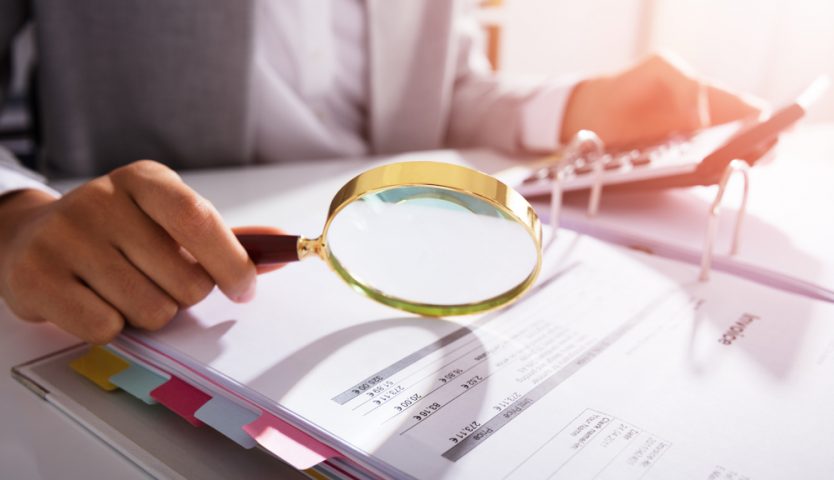
Here at Liu & Associates, we know that audits are no fun. Whether you are an individual or run a business, this can be a stressful situation.
The CRA does not select audit candidates at random. Instead, they use a system of risk assessment that flags returns considered to be “high risk.”
Fortunately, there are certain audit triggers you can avoid in order to circumvent a tax audit. Here are the most common ones in Canada:
Unusual Deductions or Changes
When you file your taxes with the CRA, they will look for consistencies in your return compared to other years.
If they notice a dramatic change in your income, credits, or deductions, your return could be flagged for an audit.
When it comes to avoiding a tax audit involving significant changes, be sure to document all activity so you can justify these changes to the CRA.
Excessive Claims
While being able to write off expenses on your taxes can be a relief, you have to be careful about ensuring that you are making claims you are actually eligible for.
For example, if you have a home office, you can’t claim that your office takes up half of your six-bedroom home. This is unrealistic and may trigger a CRA audit.
Likewise, unless you own a snowplow or other vehicle used strictly for business, you can’t write off 100% of your family car. The CRA will take notice of this claim and question why you are writing off an entire vehicle used for personal reasons.
When it comes to claiming deductions on your personal tax return, speak to a professional accountant to find out what you are eligible for. As long as you only claim what you are entitled to, you’ll have nothing to worry about if you are audited.
Unreported Income
When you’re employer issues you a T4 slip stating your earnings, they also send one to the CRA. Therefore, the CRA will know if you don’t report your total income.
This can get tricky if you receive transactions that involve cash. Be sure to keep a record of all cash transactions and claim this income when you file your taxes.
Being Self-Employed
When you work for yourself and do not receive a T4 statement of income, the CRA may consider you a high-risk taxpayer because your income is not officially documented and automatically taxed.
The CRA looks at it this way: If you do not have taxes taken from your income, there is an increased chance that your taxes could be incorrectly reported.
As long as you keep detailed records of your income as a self-employed individual, you simply have to provide these documents to the CRA if you face an audit.
Repeat Losses
If your business shows repeat losses, especially those that occur to offset other gains or earnings, you can expect an audit by the CRA.
Avoiding an audit, in this case, involves your ability to demonstrate that you had a “reasonable expectation of profit.” Otherwise, you could be denied all of your expenses.
Prior Tax Audits
Unfortunately, if you have faced a tax audit in the past, the CRA will likely audit you again because they consider you a risk factor.
While there’s no set-in-stone rule when it comes to auditing individuals who have been previously audited, the CRA will typically re-audit individuals who routinely make errors and omissions on their tax returns.
Plus, if you didn’t pass your previous audit with flying colors or owed/undeclared a lot of money, the CRA will come back and audit you again.
Tips for Avoiding a Tax Audit
No one wants to face a tax audit. This ordeal can be stressful, but if you are careful with your tax return, you can avoid one altogether.
Here are some tips for avoiding a tax audit:
- Keep accurate records. The audit process typically begins when the CRA notices an error or incongruency. By keeping accurate records, either by hiring an accountant or using accounting software, you can ensure that your taxes are accurate and filed properly.
- File your taxes on time. Although filing late taxes doesn’t necessarily trigger an audit, creating a history of compliance can help you avoid one.
- Use your CRA My Account. You can register for a CRA My Account and keep all of your tax information and account balances in one place. This will greatly help you avoid an audit!
- Amend your return. If you file your taxes and then realize you have made a mistake, amend your return immediately. It can help you steer clear of an audit but just don’t amend your taxes too frequently – you want to maintain that history of compliance.
- Fill in all information. Even if you have to put in $0, make sure you fill out everything on your tax return. An honest mistake or omission may draw the attention of the CRA.
What Should I Do If I’ve Been Selected for a Tax Audit?
If you have been selected for a tax audit, you must comply with your auditor. You will receive an initial notice that indicates what types of records the CRA requires during the process.
This is why keeping good records is essential when it comes to your taxes. Hopefully, you can easily fill any holes noticed by the CRA with the proper documentation.
However, if they are asking for information you do not have or you are confused by the process, it would be beneficial to seek the professional services of an expert accountant.
They can help you organize your records, obtain missing information, and file for an audit appeal if applicable.
An Ounce of Prevention is Worth a Pound of Cure
Let our experts at Liu & Associates take care of all your tax needs.
Whether you are an individual or own a business, we can help you stay organized, understand taxation laws, and avoid a tax audit altogether!
